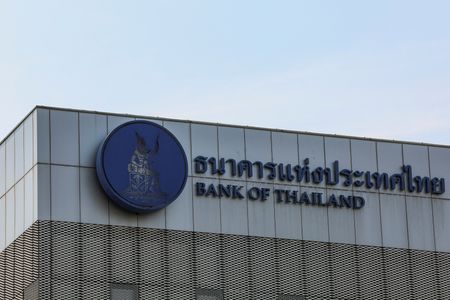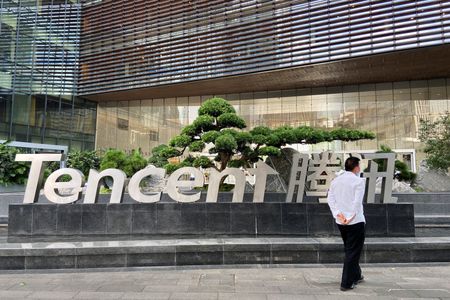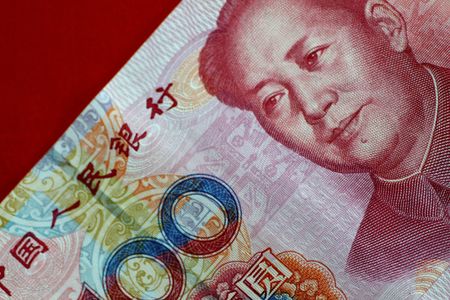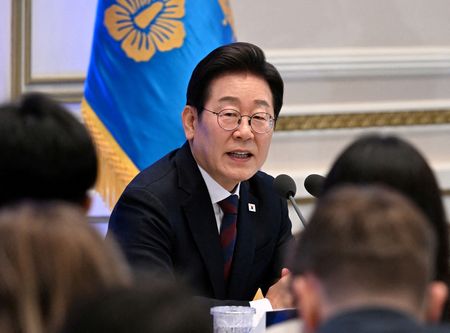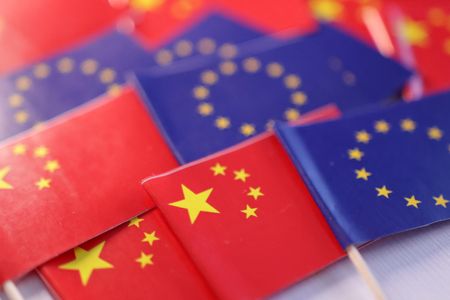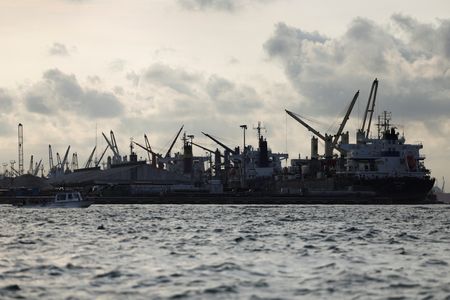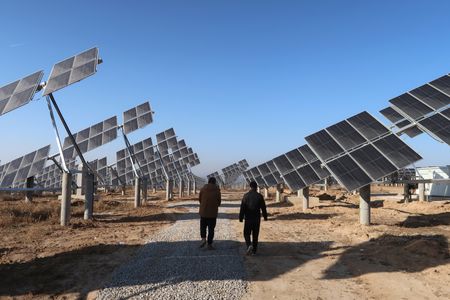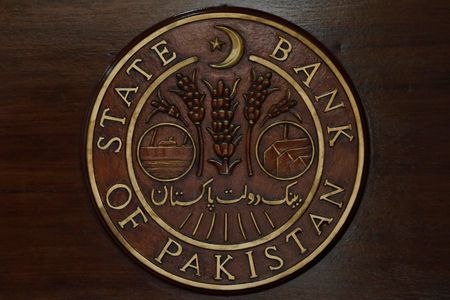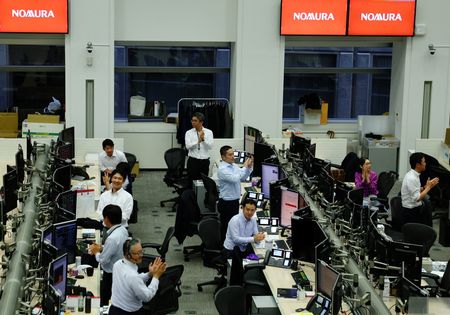BANGKOK (Reuters) – Thailand’s central bank lowered its policy rate by a quarter point on Wednesday, its fourth cut in 10 months, to support a sluggish economy grappling with falling prices, the impact of U.S. tariffs and a decline in foreign tourists.
The monetary committee unanimously voted to cut the one-day repurchase rate by 25 basis points to 1.50%, the lowest in more than two years.
The economy was expected to expand this year and next, close to earlier assessments, but U.S. trade policies would exacerbate structural problems and weaken competitiveness, with small businesses vulnerable, the central bank said in a statement.
“Going forward, the economy is expected to slow down in the second half of the year due to U.S. trade policies, both directly and indirectly, and a decline in short-haul tourist arrivals as a result of intensified regional competition,” it said, adding that private consumption and small businesses would be hit.
“The committee views that monetary policy should be accommodative going forward to support the economy,” it added.
The central bank said it expects growth in Southeast Asia’s second-largest economy to slow in the second half of the year.
The baht reversed course to fall 0.1% after the announcement, while Thai stocks were largely unchanged after rising 1.10% in morning trading.
The economy has struggled with weak consumption, high household debt, slowing tourism, trade uncertainty and U.S. tariffs.
The central bank has said the economy might have grown about 3% annually in the second quarter of 2025 but would feel the impact of U.S. tariffs and weakening consumption later this year.
Wednesday’s meeting was the last for Governor Sethaput Suthiwartnarueput. New Governor Vitai Ratanakorn will take over on October 1, and he has said rate cuts will support growth.
The next policy review will be on October 8.
In June, the BOT predicted 2025 economic growth of 2.3%, with export growth of 4%, after factoring in U.S. tariff rates of 18%. The economy expanded 2.5% last year, lagging peers.
Last month, the United States reduced its tariff rate to 19% on imported goods from Thailand, down from the initial 36% level and more aligned with other countries in the region. There are still uncertainties relating to U.S. tariffs on transshipments via Thailand from third countries.
There are still uncertainties relating to U.S. tariffs on transshipments via Thailand from third countries.
The United States was Thailand’s biggest export market last year, accounting for 18.3% of total shipments, with a value of $55 billion.
Consumer prices in July fell 0.7% from a year earlier, down for a fourth consecutive month, and below the central bank’s target range of 1% to 3% for the fifth consecutive month.
Headline inflation was subdued because of supply side factors including low food prices from favourable weather conditions and downward trends in energy prices, the BOT said.
Price decline was not widespread as core inflation remained stable and near previous assessments, it said.
In June, the central bank predicted headline inflation of 0.5% this year, with the core rate seen at 1%.
Adding to the challenges is renewed political turmoil that could bring down Prime Minister Paetongtarn Shinawatra or the coalition government led by her Pheu Thai party.
(Reporting by Orathai Sriring, Kitiphong Thaichareon, Thanadech Staporncharnchai, Chayut Setboonsarng; Editing by Martin Petty and Jacqueline Wong)

